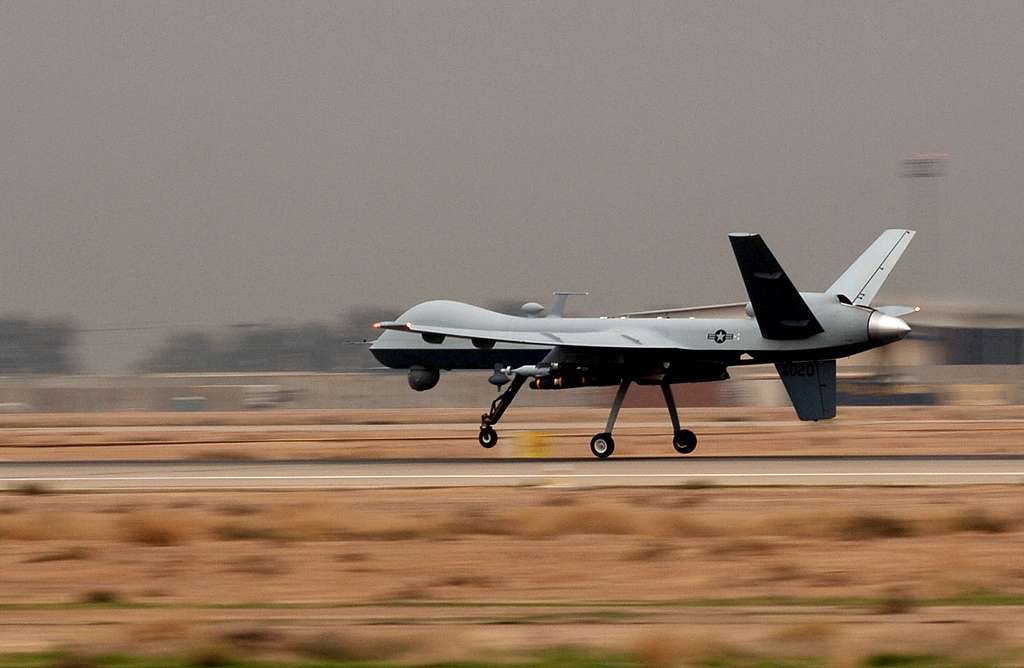The Ethical Landscape of Autonomous Weapon Systems in Modern Warfare
The rapid proliferation of autonomous weapon systems (AWS) in warfare underscores a transformative potential that brings both operational advantages and a host of ethical dilemmas. Recent conflicts, notably the ongoing situation in Ukraine, have brought these challenges to the forefront. Drones utilized by both Ukrainian and Russian forces demonstrate advanced targeting capabilities, showcasing the effectiveness of these technologies but also raising questions regarding accountability when errors occur.
Defining Autonomy and Lethal Autonomous Weapon Systems (LAWS)
At the core of this discussion is how we define autonomy in military contexts. Autonomous systems can operate on various levels of human interaction: from "human-in-the-loop," where humans make the final call on target selection, to "human-out-of-the-loop," where systems independently select and engage targets. The concept of lethal autonomous weapon systems (LAWS) takes this discussion further into ethically complex territories, where machines could potentially make life-and-death decisions without human judgment.
One significant example is the U.S. Department of Defense’s Project Maven, which enhances situational awareness by automating the analysis of drone footage. While such systems improve efficiency, the transition to fully autonomous systems raises critical ethical and legal questions around responsibility and accountability in conflict scenarios.
Global Developments in Drone Technology
The militarization of drone technology is accelerating globally. The U.S. aims to revamp its military capabilities by incorporating thousands of drones into its operations, focusing on surveillance and attack functions. Insights from the Ukraine-Russia conflict show that drones can significantly alter battlefield dynamics, offering low-cost options that challenge traditional military hardware.
Countries like China and Russia are rapidly innovating in this space. Russia’s production of over a million drones in a single year signifies its strategy to enhance combat effectiveness through automation. China’s aggressive developments, aided by private industry, showcase its ambition for global AI dominance, leading to concerns over ethical use by non-state actors and authoritarian regimes.
Risks and Advantages of Lethal Autonomous Weapon Systems (LAWS)
The adoption of LAWS carries both considerable risks and prospective advantages. Unlike nuclear weapons, which serve as deterrents due to their destructiveness, LAWS enable a lower threshold for conflict escalation. They promise precision, but this very precision poses challenges to the principles of distinction and proportionality essential under international humanitarian law. The potential for algorithmic bias could exacerbate civilian casualties, further complicating the ethical landscape.
However, LAWS also offer transformative opportunities to enhance battlefield efficiency. By reducing human error and fatigue, they can ensure that military actions adhere more closely to ethical guidelines. Their operational speed can provide strategic advantages, allowing rapid responses to emerging threats without risking human lives.
Progress Towards Ethical and Accountable Use of AWS
As we look to the future, developing AWS demands a holistic approach that integrates ethical considerations into the technology. Building trust in these systems is essential, especially when lives are at stake. Rigorous testing and validation are instrumental in ensuring the reliability of non-lethal systems before transitioning to lethal ones.
Efforts like the U.S. Department of Defense’s mandate for human oversight in lethal operations are steps in the right direction. Ensuring that operators are involved in decisions with life-or-death consequences not only fosters accountability but also aligns with international humanitarian law.
Evolving Policies and Guidelines
The international policy landscape must adapt to the rapid advancements in AWS. Current humanitarian laws require human oversight, emphasizing that automatic systems lack the moral agency to make profound ethical decisions. As discussions around these laws evolve, many experts advocate for a legally binding instrument to prohibit LAWS without human intervention.
Moreover, debates are intensifying regarding the necessity of establishing international norms to regulate the development and use of these technologies. Acknowledging the risks posed by machines operating independently underscores the call for vigilance and regulatory frameworks that prevent misuse.
Conclusion
The landscape of warfare is shifting dramatically with the introduction of AWS. The operational benefits they offer come with significant ethical implications that require thoughtful discourse among policymakers, military strategists, and technologists. Balancing innovation with ethical oversight is essential as we navigate the complexities of autonomous warfare.

